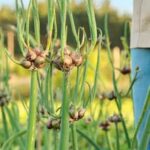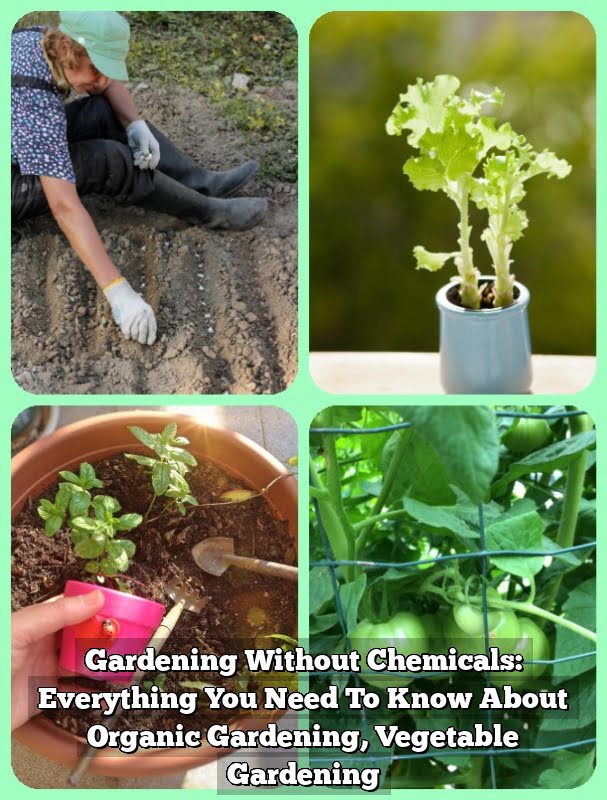Charleston, South Carolina has a rich gardening history dating back centuries, with its mild climate and fertile soil making it an ideal location for vegetable gardening. The city’s long tradition of agriculture and horticulture has contributed to a wealth of knowledge about successful vegetable gardening in this region. Whether you’re a beginner or experienced gardener, Charleston offers unique opportunities for growing a variety of vegetables year-round.
With its unique climate and soil conditions, Charleston presents both opportunities and challenges for vegetable gardening. In this article, we will explore the best vegetable varieties for Charleston’s climate, tips for preparing and maintaining the soil, container gardening for small spaces, pest and disease management, seasonal planting and harvesting schedule, as well as sustainable and organic practices in Charleston vegetable gardening.
Additionally, we will provide information on community resources and events available for Charleston vegetable gardeners to help them succeed in their garden endeavors.
Whether you have a spacious backyard or a small balcony, there are ways to grow your own vegetables in Charleston. By understanding the rich gardening history of the city and implementing the best practices for this region, you can enjoy a bountiful harvest of fresh, homegrown produce all year round. Join us as we delve into the world of Charleston vegetable gardening and discover how to make the most of this historic city’s unique agricultural heritage.
Best Vegetable Varieties for Charleston’s Climate
When it comes to Charleston vegetable gardening, selecting the right vegetable varieties that are well-suited to the local climate is crucial for a successful harvest. The warm, humid subtropical climate of Charleston presents both opportunities and challenges for vegetable gardeners. Fortunately, there are several vegetable varieties that thrive in this type of climate and produce bountiful harvests.
One popular choice for Charleston vegetable gardening is the “Charleston Gray” watermelon, known for its sweet, juicy flesh and resistance to common pests and diseases in the area. For those looking to grow tomatoes, the “Carolina Gold” tomato variety is an excellent option, as it is well-adapted to the heat and humidity of Charleston. Other recommended vegetable varieties for Charleston’s climate include “Clemson Spineless” okra, “Southern Giant Curled” mustard greens, and “South Anna Butternut” squash.
In addition to these specific varieties, it is important to choose vegetables that have been bred or adapted for hot and humid climates. Look for seeds or plants labeled as heat-tolerant, disease-resistant, or suited for southern gardens when selecting your vegetable varieties for Charleston.
| Vegetable Variety | Characteristics |
|---|---|
| Charleston Gray Watermelon | Sweet, juicy flesh; pest and disease resistant |
| Carolina Gold Tomato | Well-adapted to heat and humidity; high yield |
| Clemson Spineless Okra | Tender pods; heat-tolerant |
| Southern Giant Curled Mustard Greens | Easy to grow; heat-resistant |
Whether you are new to Charleston vegetable gardening or have years of experience under your belt, choosing the right vegetable varieties is essential for a successful harvest in this unique climate. By selecting heat-tolerant, pest-resistant varieties suited to the local conditions, you can enjoy a thriving vegetable garden year after year in Charleston.
Tips for Preparing and Maintaining the Soil
Charleston, South Carolina has a rich gardening history, making it an ideal location for vegetable gardening. The city’s subtropical climate and fertile soil create perfect conditions for growing a wide variety of vegetables. However, successful vegetable gardening in Charleston requires proper soil preparation and maintenance.
Soil Testing
Before planting your vegetables, it is essential to test the soil in your garden. Soil testing will provide valuable information about the pH levels, nutrient content, and organic matter present in the soil. You can contact the local extension office or use a DIY soil testing kit to determine the current condition of your soil.
Amending the Soil
Based on the results of your soil test, you may need to amend the soil by adding organic matter, such as compost or aged manure, to improve its texture and fertility. Charleston vegetable gardening benefits from the addition of organic materials that help retain moisture and nutrients in sandy soils while improving drainage in clay soils.
Mulching
Applying mulch to your vegetable garden helps maintain soil moisture, suppress weeds, and improve the overall health of the soil. Organic mulches like straw, wood chips, or pine needles are great options for Charleston vegetable gardens as they break down over time, adding valuable nutrients to the soil.
By following these tips for preparing and maintaining the soil in your Charleston vegetable garden, you can ensure healthy plant growth and bountiful harvests throughout the growing season. Properly cared-for soil will provide a solid foundation for your vegetable garden’s success and contribute to sustainable gardening practices in this historic city.
Container Gardening for Small Spaces
Benefits of Container Gardening
For those living in urban areas or with limited outdoor space, container gardening is a fantastic way to still enjoy the benefits of vegetable gardening. The portability and flexibility of containers allow individuals to grow their favorite vegetables, herbs, and fruits without requiring a traditional garden plot. In Charleston, where space can be limited, container gardening provides an opportunity for residents to connect with nature and cultivate their own fresh produce.
Choosing the Right Containers
When engaging in Charleston vegetable gardening through containers, it’s important to select the right type of containers for optimal plant growth. Choose containers that are large enough for the specific vegetable varieties being grown, ensuring adequate room for root development and water retention. Additionally, consider the material of the containers – plastic, clay, wood, or fabric – as this can impact moisture levels and temperature regulation within the soil.
Key Considerations for Container Gardening in Charleston
Charleston’s warm climate presents unique considerations for successful container gardening. It’s essential to place containers in areas that receive sufficient sunlight while also protecting them from harsh midday sun during the hottest months. The hot and humid conditions characteristic of Charleston also mean that plants may require more frequent watering compared to those grown in traditional garden beds. Gardeners should be mindful of providing adequate drainage in containers to prevent waterlogged soil and root rot.
By embracing container gardening techniques tailored to their unique environmental context, individuals can partake in Charleston vegetable gardening regardless of space constraints while reaping a bountiful harvest.
Pest and Disease Management in Charleston Vegetable Gardens
Charleston vegetable gardening is a popular activity due to the city’s favorable climate and rich gardening history. However, like any garden, it is essential to be proactive in managing pests and diseases to ensure a successful harvest. Fortunately, there are several strategies that can be employed to keep vegetables healthy and free from harmful insects and diseases.
One of the best ways to prevent pests and diseases in Charleston vegetable gardens is through proper crop rotation. By rotating crops each season, you can disrupt the life cycles of pests and reduce the build-up of soil-borne diseases. Additionally, practicing good garden hygiene by removing any infected plant material can help prevent the spread of diseases.
In addition to cultural practices, there are also several natural methods for pest and disease management in Charleston vegetable gardens. For example, introducing beneficial insects such as ladybugs or lacewings can help control harmful pests like aphids or caterpillars. Similarly, using organic insecticidal soaps or neem oil can effectively manage common garden pests without harming beneficial insects or wildlife.
| Management Strategy | Effectiveness |
|---|---|
| Crop Rotation | Highly Effective |
| Natural Predators | Effective |
| Organic Insecticides | Moderately Effective |
Seasonal Planting and Harvesting Schedule
Charleston, South Carolina’s climate offers unique opportunities for year-round vegetable gardening. With mild winters and long, warm summers, Charleston gardeners have the chance to plant and harvest a wide variety of vegetables throughout the year. To maximize your garden’s potential, it is essential to follow a seasonal planting and harvesting schedule that takes advantage of the city’s climatic conditions.
Here are some guidelines for seasonal planting and harvesting in Charleston vegetable gardening:
- Spring (March – May): Begin planting cool-season crops such as lettuce, spinach, kale, and broccoli in early spring. As the weather warms up, transition to warm-season vegetables like tomatoes, peppers, squash, and cucumbers.
- Summer (June – August): In summer, continue to harvest warm-season crops while also planting heat-tolerant varieties such as okra, sweet potatoes, and southern peas. Consider succession planting to ensure a continuous harvest.
- Fall (September – November): The fall season is perfect for growing cool-season crops again. Planting greens like arugula and Swiss chard as well as root vegetables such as turnips and carrots can yield bountiful harvests.
- Winter (December – February): While winters are relatively mild in Charleston, it is still a good idea to focus on cold-hardy vegetables like Brussels sprouts, kale, and collard greens during this time.
By following this seasonal planting and harvesting schedule tailored to Charleston’s climate, you can make the most of your vegetable garden throughout the year. Be sure to stay informed about specific planting dates for each crop based on your local frost dates in order to achieve optimal results in your charleston vegetable gardening experience.
Sustainable and Organic Practices in Charleston Vegetable Gardening
Charleston has a rich gardening history, and it remains a popular activity in the city to this day. Many people in Charleston are interested in sustainable and organic practices when it comes to vegetable gardening. There is a growing movement in the city towards environmentally friendly and healthy gardening methods.
When practicing sustainable and organic gardening in Charleston, there are several tips that can help ensure a successful harvest while minimizing impact on the environment.
Some essential practices for sustainable and organic vegetable gardening in Charleston include:
- Composting: Utilize kitchen scraps, yard waste, and other organic materials to create nutrient-rich compost for your garden.
- Water conservation: Be mindful of water usage by utilizing rain barrels, drip irrigation systems, and selecting drought-resistant plant varieties.
- Integrated pest management: Encourage natural predators, use companion planting techniques, and employ mechanical barriers to manage pests instead of relying on harmful chemicals.
In addition to these practices, many Charleston vegetable gardeners also prioritize soil health through regular testing, crop rotation, and maintaining proper pH levels. By following sustainable and organic practices, Charleston residents can enjoy fresh, healthy produce while minimizing their environmental impact.
There are various resources available in the city to support those interested in learning more about sustainable and organic vegetable gardening. From community workshops to local organizations dedicated to environmental stewardship in agriculture, Charleston offers numerous opportunities for gardeners to connect with like-minded individuals and expand their knowledge of sustainable practices.
Community Resources and Events for Charleston Vegetable Gardeners
In conclusion, Charleston’s rich gardening history and favorable climate make it an ideal location for vegetable gardening. From the best vegetable varieties to tips for soil preparation and maintenance, the city offers a wealth of opportunities for enthusiasts to grow their own produce. Whether you have a spacious backyard or limited outdoor space, container gardening is a viable option for Charleston residents who want to try their hand at growing fresh vegetables.
Pest and disease management are essential factors to consider when maintaining a successful vegetable garden in Charleston. By implementing sustainable and organic practices, gardeners can help protect their plants from potential threats while also contributing to the overall health of the environment.
Furthermore, Charleston offers numerous community resources and events for vegetable gardeners to connect with like-minded individuals. From local gardening clubs to workshops and farmers’ markets, there are plenty of opportunities for residents to learn from experts, share tips, and celebrate the joy of harvests together.
With a well-planned seasonal planting and harvesting schedule, coupled with the support of the community, Charleston vegetable gardening can become a rewarding and enriching experience for all involved. So roll up your sleeves, get your hands dirty, and join in on the flourishing culture of Charleston vegetable gardening.
Frequently Asked Questions
When Should I Plant My Garden in Charleston SC?
The best time to plant a garden in Charleston, SC is during the spring months, typically from March to May. This allows for plenty of warm weather and sunshine for your plants to thrive.
What Are the Best Vegetables to Grow in South Carolina?
Some of the best vegetables to grow in South Carolina include tomatoes, cucumbers, squash, peppers, and okra. These vegetables are well-suited to the climate and soil conditions in the region.
Can You Grow Vegetables Year Round in South Carolina?
Yes, it is possible to grow vegetables year-round in South Carolina with proper planning and care. While some crops may not survive the winter months, others can be grown through fall and winter with the help of protective coverings or indoor gardening techniques.

If you’re looking to get into vegetable gardening, or are just looking for some tips on how to make your current garden better, then you’ve come to the right place! My name is Ethel and I have been gardening for years. In this blog, I’m going to share with you some of my best tips on how to create a successful vegetable garden.





